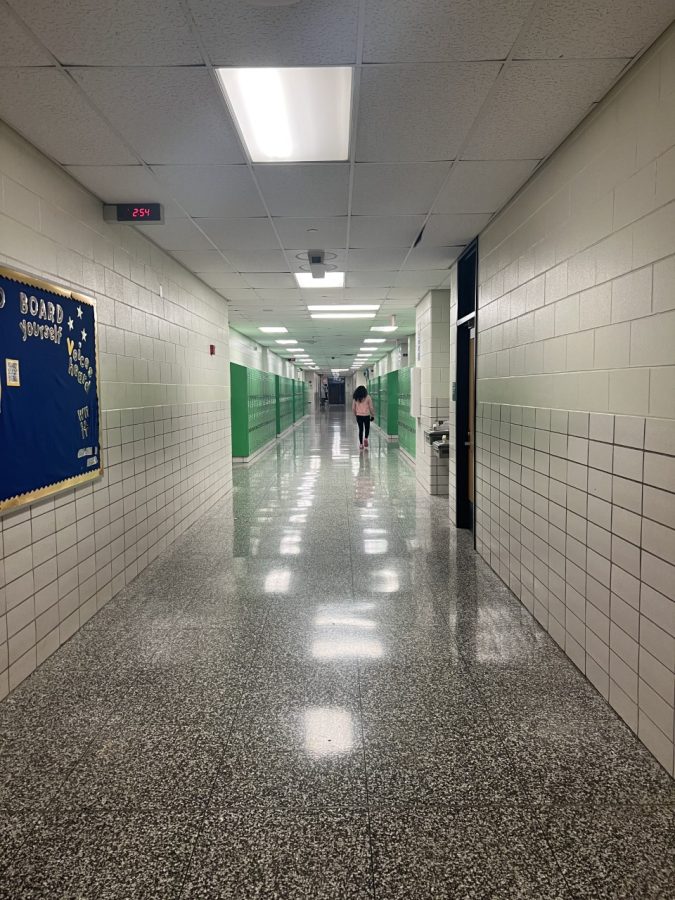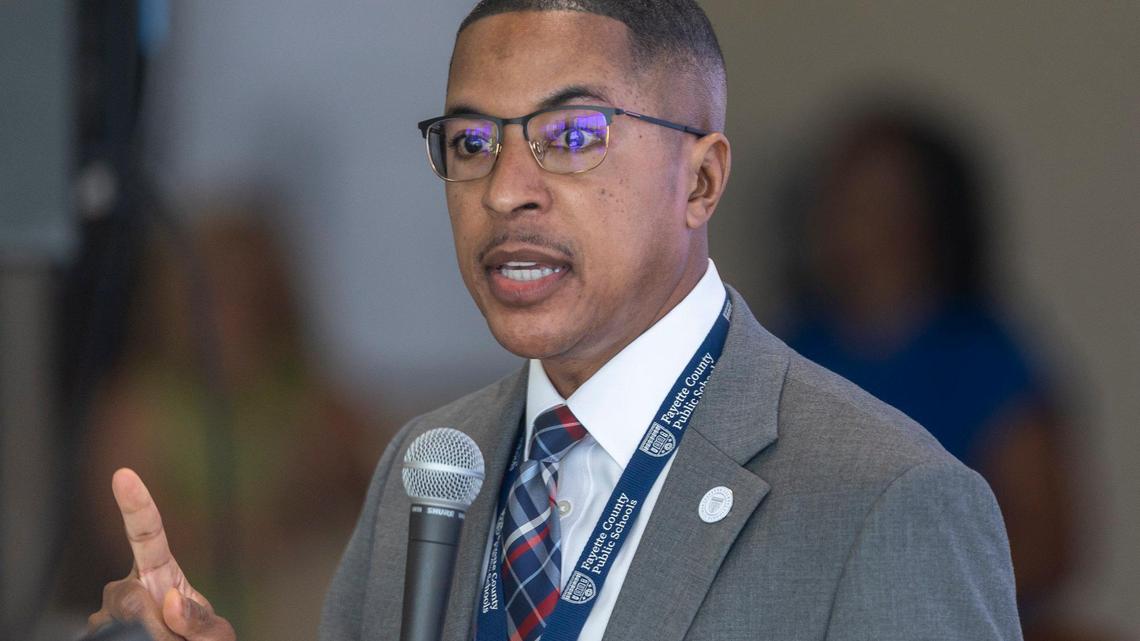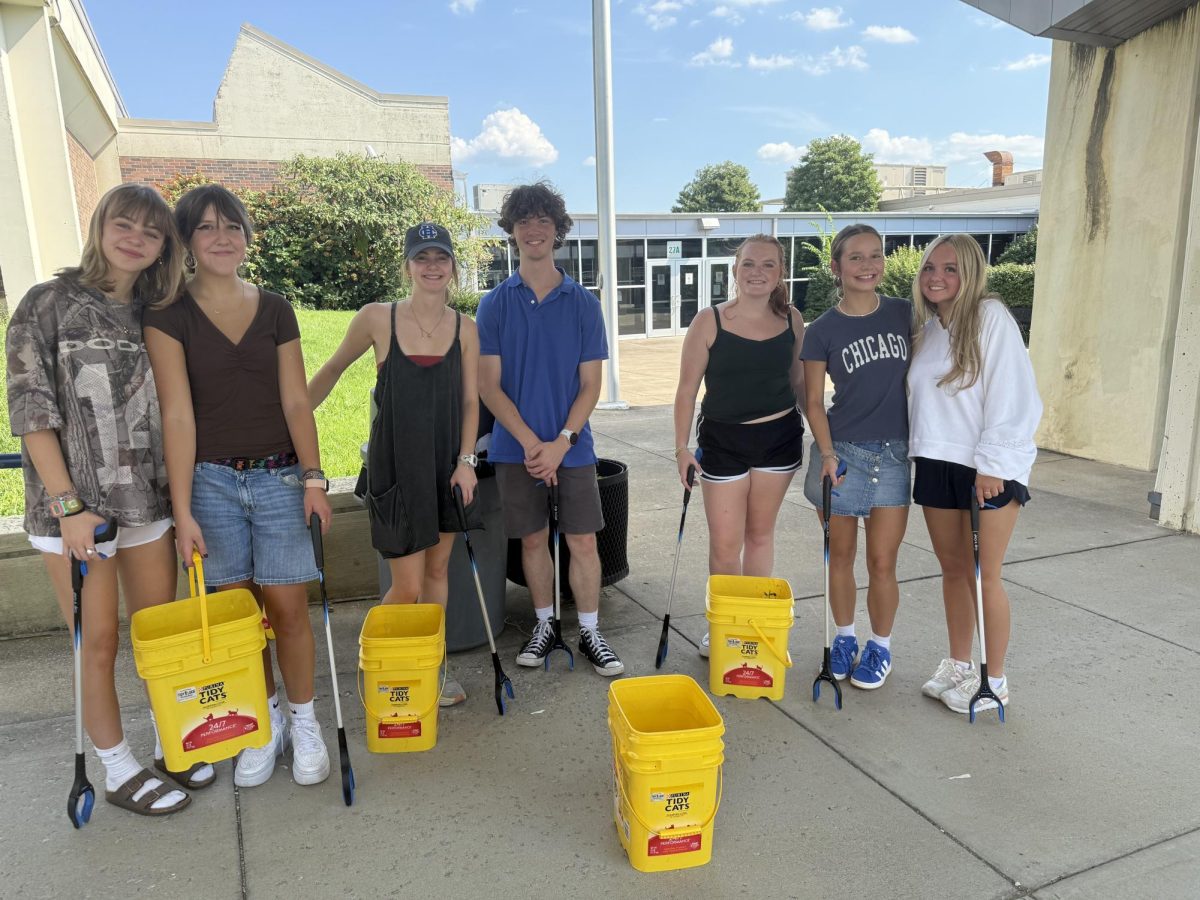On September 29th, the Devils’ Advocate editorial staff sat down with administrators Dr. Corye Franklin, Dr. JJ Allen, and Steven Riley to discuss ongoing changes at HC.
Plans for New Building
Dr. Franklin: “The school board did decide that instead of a renovation it would support a new construction, so in the ‘28-’29 school year Henry Clay is set to open a brand new building. That is going to happen here in this area, on these grounds. I know that there will be an opportunity for stakeholders, students, parents, teachers, to weigh in.”
Mr. Riley: “A second gym would be nice so we can have more gym classes, more activities, more facilities for our athletes to use and to train with.”
Dr. Franklin: “That natural lighting is going to be really important, and a more flowy-type of environment. I think the way the building is currently designed, just hallways, stairs, but not a lot of space for people to mix and mingle. Some bathrooms that are larger, newer and updated, those kinds of things are things I would love to see.”
Dr. Allen: “More offices for student support and services because a lot has changed since 1970 to now. We need a lot more support for students . . . When we start this process, the whole community, all the stakeholders will be involved. Any time there’s a new school you get the excitement and it makes it so much easier to book events from outside communities. Events from here and with the extra gym, that’ll bring the community in and a lot of parents will be more involved too.”
Mr. Riley: “There’s always something going on in the building with our current setup. Having a nicer, newer facility and more opportunities for people in the community to use our things [can] help other people in the community.”
Advisory
Dr. Franklin: “Advisory is really that opportunity to share school wide news, for students to engage in social emotional learning as well as some financial literacy and spend some time reflecting. Looking at grades and really fostering a relationship with the actual advisor which is the teacher in the classroom, those things should be happening on a consistent basis.”
Mr. Riley: “This is a huge bureaucracy, huge building, there’s lots of things going on and so as students you might miss something. You go to your advisory teacher so if somebody needs help they have a contact person who can help solve those little logistic issues that happen for students.”
Dr. Franklin: “For a senior advisor, being your champion as well so in the event that they need to advocate for you, or lets say your struggling with a particular class, it’s my hope and vision that you can go to your advisor and ask how to navigate. Really spending time leaning on that adult to help you throughout your year or high school experience. Ultimately the goal is for you to travel with your advisor because those relationships really are strengthened when you’re consistently with that person.”
Behavioral regulation
Riley: “Our goal is for every student to be learning in class everyday, learning the standards, getting better, improving, [and] for teachers to have engaging lessons. The behavior and the academics are attached; if kids are in the hallway, they’re not in class learning. Some of the changes we’ve made are trying to get kids to be more in class so that learning can take place and we can reach the highest we want as a school. We’re a good school, we want to be a great school. That can’t happen when kids are in the hallway, not focused in class or teachers are not teaching the standards.”
Dr. Franklin: “We know that 99% of all of the negative things that happen with students are when they’re not where they’re supposed to be. And so if we could have them in class with an adult and learning, that reduces the possibility of students getting into trouble as well as creating a positive experience for students. We want for students to enjoy their high school experience. None of us want for students to be perfect and we know that things will happen. We want to create an environment where you do want to come to school but there’s also order, there’s structure . . . It feels like all our time and our attention is spent on those students that don’t do what they need to do. Honestly, it’s probably about 3-4% of the overall student population that don’t do what it is that we need and we have to really provide a lot of supports for those students. We do have some internal structures where we’re supporting a way of recognizing those students. Sometimes it’s conversations where you guys are recommending to us what you think should happen. I think I try to force students to think a little differently about change. We don’t necessarily want people to view it or feel as if it’s bad or negative or it’s a punishment.”
Mr. Riley: “In the EOS system, we ask teachers to do positive referrals. A lot of the time we get behavior referrals, but teachers can also do positive referrals in EOS, so we get some of those. We also ask teachers to send positive emails home to parents if students are doing well. There’s a lot of little things that we try to recognize that students are doing well.”
Dr. Allen: “And I know we do focus a lot on the negative behavior, but the big picture that we’re trying to create is a positive environment. So the good students, the students that don’t get in trouble, they can come up here and feel safe to go to the bathroom, they’re getting the best education, they feel safe in the hallways in class changes. I know sometimes it feels like we’re punishing the students that are doing the right thing, but the big picture is that we want to create the best atmosphere so everybody has a positive experience . . . This year we came in with a plan from looking at the data from last year. I know it wasn’t a popular choice, but we did close the bathrooms in the gym foyer. We closed the yellow hallway bathrooms. So, I think the reason from our perspective that we did it is so we can provide more support and adults there so the people that really need to use the bathroom can use it.
Dr. Franklin: “As we notice trends and patterns, and we see that these same students are violating the expectations, then we can differentiate the support that we provide for those students and perhaps back away from no passes during first [and other class periods] because now we have a target group that we can work with specifically. The approach was to cast a wide net, and now that we’ve put it out there we can start seeing the flow of traffic here, or the offenders, or whatever the case may be, and then we can approach it very differently. But we needed to start large scale first and now we can start scaling back or looking at things very specifically.”
Vaping
Dr. Franklin: “The vaping in the bathroom is not exclusive to Henry Clay. I think, depending on schools, there’s some schools in the district that can approach it a little differently because their bathrooms have doors or they can lock certain doors. We don’t necessarily have that, just the way our bathrooms are designed currently . . . I’d love to hear from students what they think a really good suggestion would be for decreasing the amount of vaping. But there are campaigns nationwide around stopping it . . .We love feedback. I know that Dr. Allen is working to really establish a student advisory council, which can provide feedback to us as a leadership team. I think it’s also really helpful if students are interested in knowing something to just ask one of us, or email one of us. We all know that sometimes rumors may spread very quickly, or someone might think that something was supposed to happen this way and it didn’t. It’s always nice to just go to the source so that you can get the factual information to better understand why things have happened the way that they’ve happened.”








